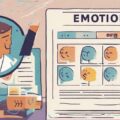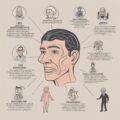Dialectical Behavior Therapy (DBT) is a comprehensive cognitive-behavioral treatment that is designed to help people struggling with emotional dysregulation, such as those with borderline personality disorder (BPD), self-harm behaviors, eating disorders, and substance abuse issues. This article provides an in-depth look at DBT, its principles, and how it can be a life-changing therapy for many.
What is DBT and Who Can Benefit?
Dialectical Behavior Therapy was developed by Dr. Marsha Linehan in the late 1980s as a means to treat borderline personality disorder. Since then, it has been adapted for other mental health issues. DBT focuses on providing therapeutic skills in four key areas: mindfulness, distress tolerance, emotion regulation, and interpersonal effectiveness.
The Four Modules of DBT
DBT’s approach is divided into four modules, each designed to address specific areas of a patient’s life:
- Mindfulness: the practice of being fully aware and present in the moment.
- Distress Tolerance: increasing a person’s tolerance of negative emotions rather than trying to escape from them.
- Emotion Regulation: strategies to manage and change intense emotions that are causing problems in a person’s life.
- Interpersonal Effectiveness: techniques to communicate with others in a way that is assertive, maintains self-respect, and strengthens relationships.
How DBT Works: The Treatment Process
DBT treatment usually involves a combination of individual therapy sessions, group skills training, phone coaching, and therapist consultations. The balance of these components is what makes DBT unique and effective for individuals with complex and severe mental health issues.
The Benefits of DBT
Research has shown that DBT can significantly improve a person’s functioning and quality of life. Benefits include reduced suicidal behavior, less self-harm, decreased substance abuse, improved emotional regulation, and enhanced social functioning.
Finding a DBT Therapist
Finding a trained DBT therapist is crucial for effective treatment. It is recommended to look for professionals who have undergone rigorous training and adhere to the comprehensive DBT model.
FAQ About DBT
Is DBT only for borderline personality disorder?
No, DBT has been adapted for treating a variety of mental health conditions beyond borderline personality disorder, including eating disorders, depression, PTSD, and substance abuse issues.
How long does DBT treatment take?
The length of DBT treatment can vary depending on the individual’s needs but typically involves a commitment of at least six months to one year of therapy.
Can DBT be done in group settings?
Yes, one of the core components of DBT is group skills training, which complements individual therapy sessions.
Is DBT effective for teenagers and children?
DBT has been adapted for different age groups, including adolescents and children, with modifications to address their unique developmental needs.
Are there online resources for learning DBT skills?
While online resources can provide insights into DBT skills, it is highly recommended to learn these skills through a certified DBT therapist to ensure they are being practiced correctly.









